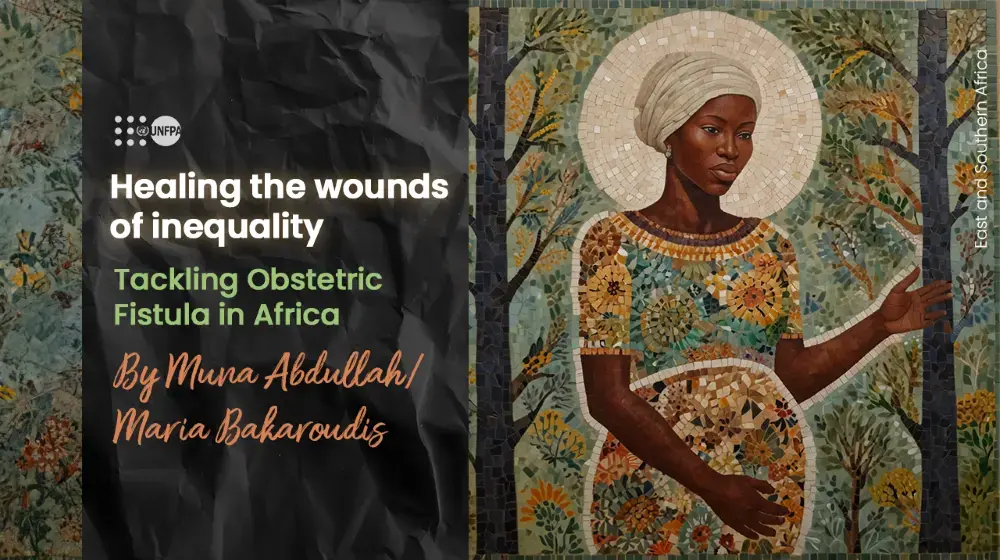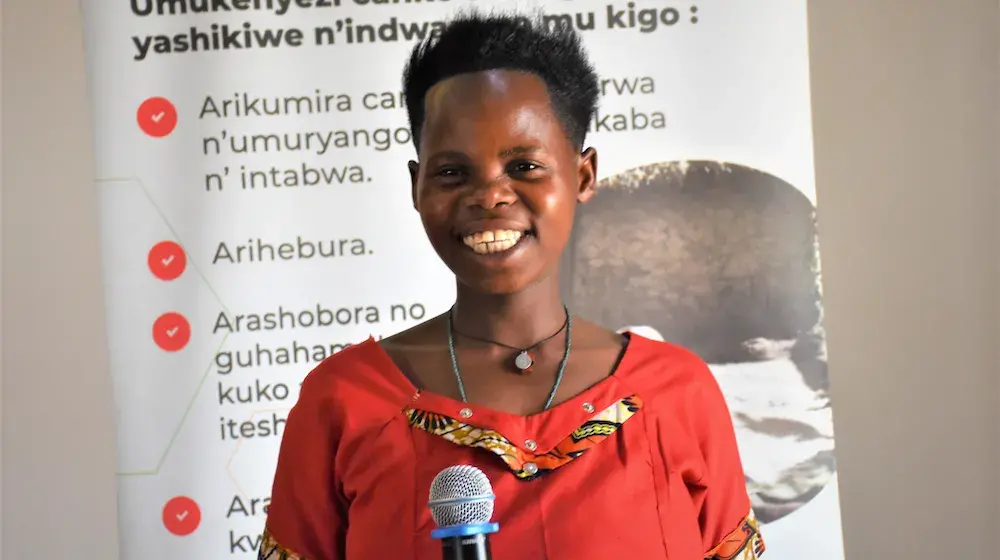JIMMA, Ethiopia—Married at the age of 20, Birkisa Aba Nega became pregnant a year later. But sadly, only one of the five children she delivered has survived. And she was left with a debilitating injury in the process.
Critically, for not one of her pregnancies did she undertake an antenatal-care follow-up visit, and nor did she attend a medical facility for delivery.
Mrs. Aba Nega hails from Seka District of Oromia Region, in western Ethiopia. At the end of her last pregnancy she was taken by ambulance to Beke Gudo Health Centre, after being in labour for a day and a night. From there she was transferred to Jimma University Medical Centre.
But the medical intervention occurred too late. She lost her baby and, to make matters worse, she developed an obstetric fistula in the process.
Mrs. Aba Nega felt ashamed of her condition and at first, was shunned by her husband. He consulted many traditional healers but to no avail. As a result she stayed at home with the condition for more than a year. Finally, her husband took her to Beke Gudo Health Centre, from where she was referred to Jimma University Medical Centre for treatment.
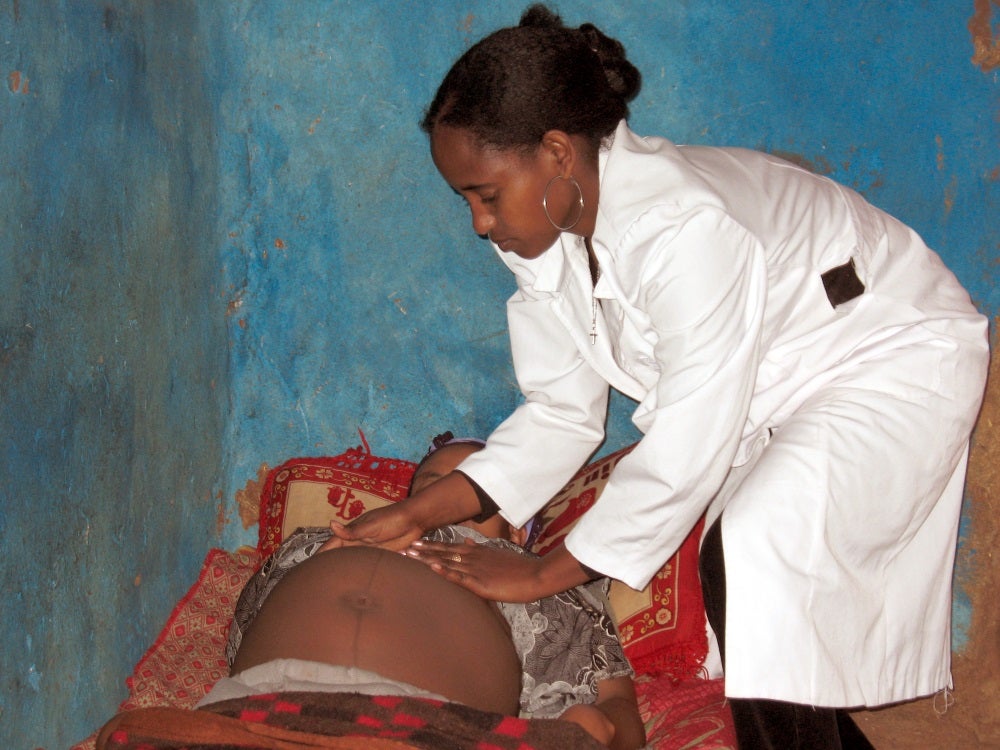
Fistula shatters women’s lives
Globally, a woman dies from complications of pregnancy and childbirth every minute. And for every woman who dies, 20 or more are injured or disabled. One of the most devastating injuries of childbirth is obstetric fistula, a hole created between the vagina and urethra or rectum, and caused by prolonged labour – often for days – without medical intervention. Usually, the baby dies.
As a result of the fistula the woman leaks urine or faeces, or both, and this condition typically results in social isolation, depression and deepening poverty. Left untreated, fistula can also lead to chronic medical problems.
The proportion of women in Ethiopia who receive antenatal care stands at 62 per cent, while only 28 per cent of births are attended by a skilled health provider at health facilities (DHS, 2016). Obstetric fistula is highly prevalent in Ethiopia, mainly as a result of obstructed labour.
A study conducted by USAID (2013) showed that an estimated 36,000 to 39,000 women in Ethiopia live with obstetric fistula, and that between 3,300 and 3,750 new cases occur in the country every year.
In 2015, the Government of Ethiopia launched a campaign to eliminate obstetric fistula by 2020, an effort that UNFPA is supporting in earnest.
UNFPA is assisting with identification of fistula patients and repairs at fistula centres based at university-affiliated hospitals in Assela, Gondar and Jimma. This support includes a training component for mid-level health professionals and community health workers – or Health Extension Workers – on prevention and diagnosis of fistula cases.
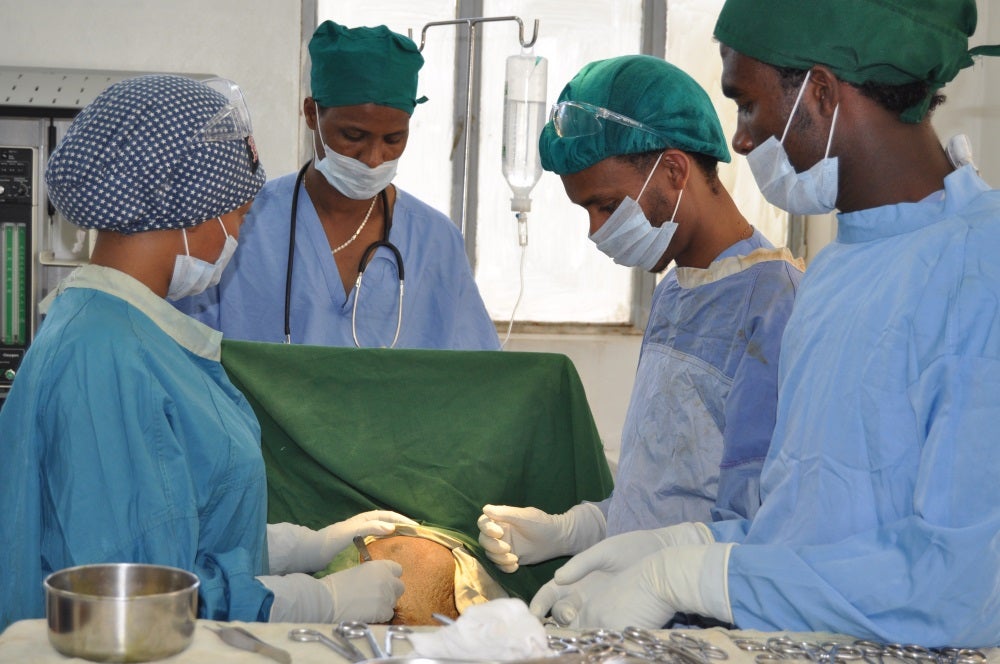
UNFPA supports training in fistula repair
Mrs. Aba Nega is one of the fistula patients who has been treated at Jimma University Medical Centre. Obstetric fistula care training has been integrated into the teaching programme for health professionals graduating from Jimma University. But it is through the in-service training that mid-level health professionals are gaining deeper knowledge and skills in fistula, as well as in uterine prolapse prevention, identification and diagnosis.
UNFPA has provided equipment in support of fistula prevention and repair efforts at Jimma University Medical Centre, as well as the two other centres located in Assela and Gondar. The latter centres complement the work of the fistula care centres operated by Hamlin Fistula Hospital in six locations across the country.
Assisting those who are hardest to reach
Women and girls with obstetric fistula are usually among those hardest to reach – they are often illiterate, with limited access to information and health services, including maternal and reproductive health care. In Ethiopia, only 4 in 10 women aged 15 to 49 years have heard of obstetric fistula – and less than one per cent of women report that they have experienced fistula (DHS, 2016).
Yet, progress is being made. Health workers at lower tiers of the health system are now identifying and referring fistula cases to Jimma University Medical Centre and the two other fistula repair centres in the country. In addition, civil society organization Healing Hands of Joy is training fistula survivors like Mrs. Aba Nega to become advocates for raising awareness of fistula in the community and to convince fistula patients to seek medical attention.
These efforts are paying off. More and more fistula patients are coming forward and seeking help at the fistula care centres.
I am very happy. I will go back home to my husband and child.
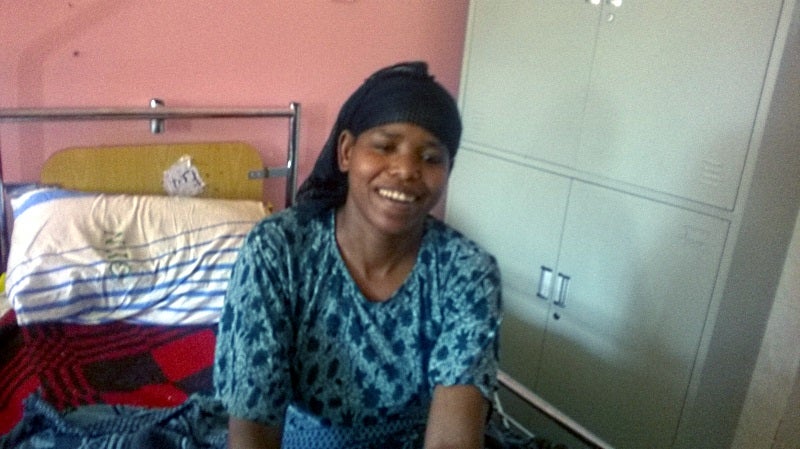
Since she went for repair, Mrs. Aba Nega’s life has changed completely. She received treatment at Jimma University Medical Centre and has been healed.
“I am very happy,” she says. “I will go back home to my husband and child. I will also inform those living with this problem in our locality to go and get treatment, like me.” She smiles broadly.
– Abraham Gelaw and Jimma University Medical Centre


